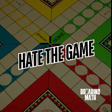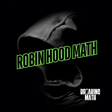Become a Creator today!Start creating today - Share your story with the world!
Start for free
00:00:00
00:00:01

P11: Feeling Lucky? (Probability and Intuition)
Join Sofía Baca with her guest Millicent Oriana from the newly launched Nerd Forensics podcast as they discuss some apparent paradoxes in probability and Russian roulette.
Intro is "Breaking Math Theme" by Elliot Smith. Ads feature "Ding Dong" by Simon Panrucker
[Featuring: Sofía Baca; Millicent Oriana]
---
This episode is sponsored by
· Anchor: The easiest way to make a podcast. https://anchor.fm/app
Support this podcast: https://anchor.fm/breakingmathpodcast/support
Transcript
Introduction and Guest Appearance
00:00:07
Speaker
I'm Sophia, and you're listening to Problem Episode 11, Feeling Lucky. It's all about the St. Petersburg paradox and a few other things. But before I go on, I want to introduce my guest for today. She's a new guest. She hasn't been on before. I'm Melissa Doriana. Thank you for being on.
00:00:23
Speaker
Thank you for having me on.
Introduction to Nerd Forensics
00:00:25
Speaker
My name is Millicent Oriana, the host of a new podcast that actually just came out today called Nerd Forensics. And you can find it on any streaming service that you found this great podcast on.
00:00:36
Speaker
And this is also a project of basically the overarching organization that Breaking Bad is part of, right? Santa Fe Trail Media. It's going to be the second regular podcast, right? Yes. It's going to be the second regular podcast. Although where you're going to discuss things like probabilities and stuff, I'm going to discuss the probability of whether or not, you know, I liked a movie.
00:01:00
Speaker
It sounds fun though. I've been on a couple of episodes during getting ready. Do you want to give a little bit of an idea of what listeners will have in store? Oh, absolutely. She's right about it being fun. It's a regular pizza party. Our first episode is about whether or not Batman's a fascist. That one was fun to record.
00:01:21
Speaker
We also have other topics. We're going to talk bad about movies that are identical to other movies for one reason or another. We're going to have episodes where we chronicle the worst ideas executives ever had. We're going to talk about the worst movies to come out in the last hundred years.
00:01:38
Speaker
And so four episodes, that's two full length episodes and two, uh, mini sodes of your podcast are out now streaming wherever you find a podcast. So whatever you're listening on now, whether it be a anchor, Apple podcasts, Spotify, whatever, uh, go check out, uh, Millicent Oriana's podcast. And if you have friends that aren't too into math, but like to hear somebody rant about power Rangers, send him my way.
Exploring the Gambler's Fallacy
00:02:06
Speaker
All right, Millie, have you heard of the gambler's fallacy? I have heard the term, but to say I actually know what it is would be a slap to the face to all you fine math folks. So basically imagine, imagine, okay, you know how like in Dungeons and Dragons and you roll a d20, if you roll like five ones in a row, it's like, oh, come on, house has given me so many ones.
00:02:32
Speaker
Oh yeah. Yeah. You'll throw your dice and you'll claim they're cursed and demand somebody else's dice and all sorts of other stuff. Yeah. And the fact that people think dice are cursed points, I think, I think you'll agree towards a big psychological component of a randomness, right? Yeah. I mean, it's also really, really frustrating though, when you keep rolling ones. Oh yeah. And then you think that it's, it must be due for something that isn't a one is what the brain automatically starts thinking. Right. And then you roll a four.
00:03:02
Speaker
but um there's actually um so that is what the gamblers value though it's believed by some gamblers that if something occurs many times it's less likely to occur in the future or uh vice versa hot streaks cold streaks that's where white people think they game of um what are those uh trussed up vending machines called oh slot machines slot machines yeah one arm bandits they're also known
00:03:26
Speaker
Oh yeah, and now I think you'll be interested in this story that happened August 18th, 1913. A roulette ball fell on black 26 times in a row.
00:03:36
Speaker
Yeah, it makes sense that that's been documented for over a hundred years. I mean, that is that is ridiculous. Oh, yeah. The chances of this happening are one in sixty six point six million. And people lost more than they did on average by a lot betting against black more and more as the ball kept falling on black more and more. People didn't want to bet on black. So they kept betting on red. But the house, therefore, one more and more.
00:04:03
Speaker
Yeah, and you know, two people came out thrilled and the rest of them lost their shirts. And this falls into a whole group of fallacies, like statistical fallacies.
Gaming Strategies and Theoretical Games
00:04:14
Speaker
Another one of them being that like, it's related to this one that like basically any betting system that has random stuff involved, as long as the house ever has an edge, there's no betting system that you could use that will make you money in the long term.
00:04:27
Speaker
However, I think you have a fun story about Fallout 4 and how you were able to game the system. It was actually New Vegas, but yeah. New Vegas. If you have a low luck in the game, there's a trophy called the courier that broke the bank where you get kicked out of every casino in the game.
00:04:44
Speaker
For me, I was able to save in a spot and I'm sure everybody else who's ever done this has done the exact same thing where you play blackjack and if you're up, you save. If you're down, you go back to your original point and you just keep doing that. If you haven't, try it out. It takes a little bit of time, but it's the quickest way I've found to get that trophy.
00:05:04
Speaker
Yeah I mean this points to this idea obviously of like you can't really trick slot machines and I mean you said it mostly works on Blackjack but you can't really trick these games without time travel. No no no it doesn't work without the hard save. Yeah unless you said you're like the luckiest person in the game. Oh yeah if you like you have a luck stat and you have to raise that to like a 10.
00:05:28
Speaker
Didn't you play a character that had really high luck, but like really low, like everything else? They had low intelligence. They had really high luck. They had a decent amount of strength. And they were modeled after Homer, like from the Simpsons. They were literally modeled after Homer Simpson. And oh, the charisma was incredibly high too. It was great. All right. Have you heard of the St. Petersburg game?
00:05:55
Speaker
I have not heard of the St. Petersburg game. Is that anything like Russian Roulette? Nope, it isn't. But we will be talking about Russian Roulette in a moment. I like that we're talking about this as though we don't know that Russian Roulette is about to happen. It's the magic of radio kind of stuff.
00:06:12
Speaker
But anyway, we start with a pot of $2, right? The house has $2. You flip a coin over and over again. If it lands on heads, then you get whatever's in the pot. If it lands on tails, then you double what's in the pot. And then eventually you just get what's in the pot. So what would be the fair amount to charge someone to play a game like this? Is the question to this very strange game.
00:06:34
Speaker
Well, nothing, because it honestly sounds like somebody's setting you up for a grift where they just knock you out after all your money's on the table. Oh, I know. And I mean, one of the reasons why you got that sense is because, I mean, there's a one in two chance that I'll come out with $2, right? Yeah. So, and then there's one in four chance that'll come out with $4, one in eight chance of $8 and so on, right? Minus what I bet.
00:06:56
Speaker
Yeah, so the house, it's either a fast-talking con, or it's one of those you get conked in the head after you win enough. And what's fascinating about this is that, well, because you have one and a half times two plus one and a quarter times four, the amount that someone is expected to win on this is infinity. So it's interesting that you and pretty much everyone else thinks that it's kind of a raw deal, this game.
00:07:22
Speaker
Now I wrote a simulator that plays this game over and over again. I'm gonna show you the base St. Petersburg thing. So all this does is it plays it one time. If you stake ten dollars, you win eight, you net minus two dollars. Makes sense? Stake two, you win eight, minus two. No, no, you stake ten. Stake ten, you win eight.
00:07:44
Speaker
And then so you walk out with two less than you started. Yeah. And that's the thing. It was either a grift or a way to get a knife shoved in your ribs.
00:07:54
Speaker
And so, but let's try this out though, real quick with, um, let's do 10 games in a row of, uh, 10 times of, uh, betting $10 each time. You'll see that we got net negative, negative 16, negative 10, negative 52. As pretty much as long as I do this, I don't get positive. Oh, I got a couple of positive numbers, right? Yeah. You got two positives.
00:08:15
Speaker
but most of them are negatives, right? Yeah. So it seems like it's still a bad idea in the long run, right? Oh yeah, unless you're going with like millions upon millions of dollars or thousands upon thousands of dollars.
00:08:26
Speaker
Oh yeah, right. So that's exactly what we've done. Okay, so let's say that every time you play this game, right, you play it 100 total times. And you bet $10 each time. Let's see where that gets us.
Casino Strategies and Exponential Growth
00:08:43
Speaker
So it says, out of a thousand series of games with 100 plays each, there were 414 wins and 586 losses. The wins are significant enough to outweigh the losses when they're around 50%, right?
00:08:53
Speaker
Yeah, and what's weird is that the more the more I do this for so like if I have a If I play the game a thousand times each then I win about 80% of the time if I do it with 10,000 games each you're gonna win about 90% on 99.9% of the time
00:09:11
Speaker
So gambling is a way of benefiting the rich and punishing the poor. I mean, yes, absolutely. Which is also why this game would not be played because this game actually does not benefit the house because since since because even though you take millions of times to win, the house can do probably millions of games within a few years, right? So it's going to lose. It's going to be playing against kind of like one virtual person right this whole time.
00:09:35
Speaker
That's why I assume this was played in a back alley where when you win the house, shoves a knife in your ribs. Yeah. It doesn't sound like a real game and you had a good instinct for that. Yeah. Like one of the variations on how to resolve this paradox, um, comes with, uh, how long you have to live to do this. Another resolution comes with the fact that you need more money than is available probably on earth, the two in as much as we demonstrated here.
00:09:59
Speaker
And again, if you're dumb enough to play this game, you're probably following somebody into a scary alley to play it. The amount that you can expect to win only goes up by a fixed amount every time you double the amount that the house can possibly give you. So that also shows that if you double something 100 times, you've got a ton of stuff, right? Oh, absolutely. Yeah, like if you fold a piece of paper 100 times, it'll reach far past the moon. Is it 100? I thought it was more than 100.
00:10:29
Speaker
Let's do the math. Yeah, it would actually be more kilometers than... Actually, how many kilometers is that? You know what I'm saying? It's a big piece of paper though, right?
00:10:38
Speaker
Oh no, it's a 0.1 millimeters thick. And if you fold it in half over and over again, like if you were able to cut it in half over and over and stack the pieces up on top of each other, see how much is a light year? 13 billion light years. If you fold it a piece of a Bible paper in half a hundred times. Really? Yup. Exponential growth, which is weird because that's what Moore's law, governing how many transistors there, I mean, active components there are in a computing device follows.
00:11:06
Speaker
And that's why on my show we're proponents of witch burnings. We start hearing this kind of stuff and we just, we freak out. Throwing them out there if you'd like a fun time. I do recommend your podcast. Yeah, we don't actually burn witches. We haven't done that in about three weeks.
00:11:20
Speaker
And actually, real quick, let's segue back over to your podcast. And I just want to mention to our listeners, it does have a more of a mature, what do you call it, subject matter than breaking math. I mean, we bleeped out the swears, but they're swears. Yeah, and we talked bad about some celebrities. And it's really just us having a good time and really being human. Well, while following a structure, I see what you did there.
00:11:51
Speaker
Yeah, we follow this structure don't don't worry about that we Actually, we have subjects we have topics we discuss
The Intricacies of Russian Roulette
00:11:59
Speaker
them. We might get a little off-track, but we do discuss them all right now we're gonna talk about Russian roulette and Millie do you kind of want to give the cultural background about Russian roulette now is Millie's time to shine That's why you had me on the show the first mentionings of it can be found in a story from 1840 called the fatalist
00:12:19
Speaker
by Mikhail Lermontov. And I'm probably not pronouncing that right. I do apologize to any Russian listeners we have. If you would like to send me some tips on how to pronounce things, you can at nerdforensics at gmail.com. It was actually about a man named Grigory Alexandrovich Pichorouin.
00:12:38
Speaker
who explains to everyone that there is no predestination and no purpose. So he proposes a bet, emptying about 20 gold pieces into a table, and a lieutenant, Dragoon, actually tells him that he's captivated by the bet. The man loves gambling.
00:12:54
Speaker
A man was named Volek, I believe. Volek. Volek. And basically, Volek took his bet, cocked the pistol back, dumped out some powder, and said nobody can tell if it's loaded or not. Pointed it up to his head, pulled the trigger, and the percussion cap didn't go off. Which is an extreme case of luck. Because immediately afterward, he pointed it up in the air and fired a bullet through the top of the train. And that wasn't common in the 1840s for a percussion cap not to go off?
00:13:22
Speaker
You had like a one in three chance of it not going off. And for our listeners who aren't familiar with firearms, what's a percussion cap? Okay. Anybody who knows what those, you know, those little cap guns that American kids had, you know, a little like cowboy guns like pop, pop, pop. Oh yeah. I had one was a good smoke and everything. So you use one of those caps in the gun, those little like round caps. That thing is actually loaded into a musket. That's where they came from.
00:13:50
Speaker
And, uh, the hammer would set that off, which would ignite the charge, which would cause the bullet to go off. Gotcha. And, uh, so, and as the story goes, um, uh, he fired at his head, it went click fired in the sky and it went boom.
00:14:05
Speaker
Yeah, and it wasn't like a revolving cylinder. It's not the Russian we let we know nowadays. This was like a much, much higher likeliness of him being killed instantly. Pointing the gun at your head and pulling the trigger, definitely kill you four times out of five. Way closer, like 98% chance. I mean, it's really uncommon for a gun not to go off when you pull the trigger. Gotcha. So then the story jumps forward a little bit, right? Yeah. From there, we go into the 1930s.
00:14:35
Speaker
when it was actually mentioned and it's the much more common what we know nowadays.
00:14:53
Speaker
who in 1937 had a quote from a short story called Russian Roulette. And this was the quote, did you ever hear of Russian Roulette? When I said I had not, he told me all about it. When he was with the Russian army in Romania around 1917 and things were cracking up so that their officers felt that they were not only losing prestige, money, family, and country, but were also being dishonored before their colleagues of the allied armies.
00:15:22
Speaker
Some officer would suddenly pull out his revolver anywhere at the table in a cafe, at a gathering of friends, and remove a cartridge from the cylinder. Spin the cylinder, snap it back in place, put it to his head, and pull the trigger. There were five chances to one that the hammer would set off a live cartridge and blow his brains all over the place. So, still different from what we know today. Yeah, because it's everything but one in the chamber, right? Yes. So it's, uh...
00:15:52
Speaker
90 percent chance of dying. Oh, yeah. Well, that'd be a 10 percent. That'd be a gun with 10 chambers with a gun with six chambers. It'd be a 84 percent chance. I was also assuming we were talking about five shot revolver. Oh, yeah. Yeah. And I was wrong. It would be 80 if you had a five shot revolver. Oh, yeah. Definitely. Yeah. And and do you want to go over what a revolver is just in case anybody needs to know?
00:16:16
Speaker
Okay, anybody who's unfamiliar with firearms revolver is the old standard cowboy guns. The ones with the rotating cylinder on the inside, they carry between three and eight shots are the max that a revolver usually will carry. They're the ones that don't have the magazine that drops out of the bottom. Like when you empty out the gun, the handguns that, you know, you pull open and they have that round part that you load the bullets into manually. That's a revolver.
00:16:43
Speaker
Yeah, absolutely. Awesome. So anyway, continue. Didn't mean to interrupt. Oh, no problem. The term itself actually comes from the spinning of the cylinder, like a roulette wheel. And over time, it became more and more common. It became more well known.
00:17:00
Speaker
There was actually an explosion of incidents after the story was written. The second story, right? Yeah, the second story. The story titles Russian Roulette. The first notable case of it was in 1946, a legal case with the Commonwealth versus Malone, where a Pennsylvania teenager was convicted of murder because him and his friends were playing a variation they called Russian poker, where they fired at one another instead of firing at their own heads.
00:17:27
Speaker
I hear a lawyer just screaming, just being like, you've added fault. Exactly. Because if they had just pointed it at themselves, that kid would have never gotten locked up. Although it'd been the other kid who'd be alive. Probably.
00:17:43
Speaker
assuming they started with the same person anyway. Oh, yeah. Another really, really notable incident is Malcolm X actually famously would tell an anecdote when he was a when he was a criminal during the time that he was a burglar to show his partners he wasn't afraid to die. He would play Russian roulette with himself. According to Alex Haley, though, he actually would palm the bullet. Who's Alex Haley?
00:18:10
Speaker
Alex Haley is actually, he was the writer of the biography on Malcolm X that was turned into a film. Gotcha, gotcha. You also have other famous incidents, including blues musician Johnny Ace, anybody who cares for music, actually killed himself on December 25th, 1954. He put the gun to his face and shot himself. The Washington Post has attributed this to Russian Roulette.
00:18:36
Speaker
interesting graham green related in his first autobiography a sort of life that he used to play russian roulette uh one of my absolute uh favorite things though the deer hunter actually a 1978 film depicted gi's playing russian roulette with one another
00:18:55
Speaker
And if you haven't seen the movie, it's pretty good. It actually caused a bunch of kids in the 70s to start playing Russian Roulette. And prosecutors wanted to prosecute somebody in the production of the movie for it.
00:19:08
Speaker
Cause that was all the Vogue back then. Oh yeah. Um, another famous case, and this is sorry to, you know, tragic up the mood here, but in 1973 on July 24th, the Dallas police officer decided to interrogate two children by playing Russian roulette with them. And, uh, one of the children wound up dead. That's not, that's not great. I don't even understand that strategy.
00:19:32
Speaker
I don't either. Another famous incident in the 80s, an actor, a bodybuilder by the name of John Eric Hexham, was playing Russian Roulette with a 44 Magnum revolver loaded with fake bullets. The force of it caused his skull to fracture. Oh, geez. Yeah. And it was a fatal incident. I mean, it goes to show the probability of Russian Roulette is not good to either player.
00:19:56
Speaker
Oh, yeah. I mean, I mean, unless you unless you stop the game before it's over, someone dies, right? Somebody always dies. Yeah. I mean, if you're doing it with like, I mean, there are variants you can play for fun. There's actually one called the beer hunter named after the deer hunter, where you take six cans of beer, you shake one up and you basically spin them around on a lazy Susan or something like that. And whoever picks up the shook up one is loser. That's why you spin it as fast as possible so that they're all shaken up. No, I'm just kidding.
00:20:26
Speaker
Well, that would also work too, that everybody loses. So we've established that there's basically, you know, a hundred percent chance of dying, but how much and for whom? So we're going to talk about two variations of the game, right? The first variation of the game that we're going to talk about is where you spin it every single time. So you go spin, click, spin, click, spin, pow, or whatever.
00:20:50
Speaker
Yeah, yeah. Spin once, fire once, spin once, fire once. Exactly. So as you might imagine, the chance that it goes off on the first one is higher than any other one, right?
00:21:01
Speaker
One would assume. Yeah, because you have to get past that one. So the first person has a chance of one in six. The second person has a chance of one in six times five in six, because there's a five in six chance that they got to this point. Do you understand? Yes. Which is about a 13% chance. Then about 11.5% chance that it goes off on the third one. 11.6% chance that it goes off on the third one. 9.6% that it goes off on the fourth one and so on.
00:21:31
Speaker
But that doesn't account for your lifetime chance of dying, right? So like, so I asked the question, what if you have like five players with a revolver with a certain number of bullets or like a certain number of players, certain number of bullets, and you just keep going until someone dies. So what's what are your predictions for this? Well, I predicted that you're gonna ruin my plans for New Year's.
00:21:58
Speaker
I am terrified of your plans between New Years. But no, what we're going to do is we're going to play Russian Roulette using this program that I also wrote. So how many bullets in the gun? Let's start with five. All right, five bullets in the gun. Want to do two players? Yeah, we'll do two players with five bullets in a gun.
00:22:19
Speaker
Alright, so player one has about a 55.6% chance of dying, and the player two has about a 44.44% chance. And the reason why it's higher is because a player one has the probability of the first bullet plus the third bullet plus the fifth bullet, and the second player has the probability of the second plus the fourth plus the sixth, right? So they're all less numbers, so the sum of them is gonna be less, right? Yes.
00:22:45
Speaker
but that just turns out that if you go first, you're 25% more likely to die than player one. You mean player two? Player two, yes. Yeah, I was gonna say player one went first though. So the trick is to convince somebody to go first.
00:23:00
Speaker
Oh yeah, but if you have enough chambers in your bullet, there's less of a need to. So you said there's as low as three chambers. Yeah, as low as three and as high as eight. So let's do three. You have a 60% chance of dying if you're the first player and a 40% chance of dying if you're the second player. Okay, so a three shot revolver is the way to go. And if there were such thing as a two shot revolver, you'd be twice as likely to die as the first person.
00:23:27
Speaker
Wow. But yeah, let's do it the other way around. 8 shot revolver. You're only 14% more likely to die than player 1. Let's say you modified a Gatling gun. How many barrels does a Gatling gun have? Depends on what we're exactly talking. The standard Maxim machine gun though, from the 1800s, I believe had 10 barrels.
00:23:52
Speaker
Oh, okay. Well, let's just say that you had something even more than that, like some kind of fancy 36 shot revolver. Yeah. Some crazy giant cylinder. Yeah. Then you're only 2.9% more likely to die as the first person. Really? Well, I guess, yeah, actually a good way to do this. You could load a jackhammer shotgun with all a bunch of fake rounds, except for one real round. I guess that's how you could do it. Although you'd have to, you'd have to reload them every single time.
00:24:20
Speaker
Oh yeah, if we're doing the constantly spinning thing. Yeah. Oh yeah, and let me just show you a few more simulations. So if we're doing a three shot revolver and we have five players, player one is gonna die 38.4% of the time versus player five only die about 7.58% of the time. So you're actually about five times as likely to die as player five in this player one.
00:24:47
Speaker
Wow. And also, I mean, being the last player in a game of Russian Roulette also usually makes you the last player to die because you usually leave after you watch the first person die. And I decided to I decided to figure out the formula for this. And I used Wolfram Alpha and good old fashioned pen and paper.
00:25:09
Speaker
If your player k out of p players and your gun can hold n bullets, then your lifetime chance of dying is n minus 1 to the k minus 1 times n to the p minus k all over quantity n to the p minus n minus 1 to the p. And a consequence of this is that if you have
00:25:34
Speaker
Infinity players and the same number of bullets that a gun can get gun can hold the ratio of the lifetime probability of dying from the first player to the last player quote-unquote last player approaches e which is Just a fun little math fact if anybody wants to tell me why please write in and if you get it right if you're for the first person to get it right rather you'll win a free poster and
00:25:59
Speaker
So do you want to plug in any more numbers into the simulation? Sure. Let's have eight players with an eight shot revolver. Let's see what that does. You have about a 20% chance if you're player one versus about seven and a half percent chance if you're player eight. So you're about two and a half times as likely. I take those odds if I was player one. Two and a half, but you're still 150% more likely to die.
00:26:25
Speaker
Yeah, but I like the way that 19.04 looks. It really, really puts me at comfort. Oh, God. Yeah, this is why I don't go to casinos, folks.
00:26:37
Speaker
The short-lived podcast, Nerd Forensics, ended when Millicent Oriana decided to play Russian Roulette. She decided it would be, quote, a gas because she talks like it's a 60s. No, she doesn't. No, she's right. I talk like some sort of weird hillbilly that climbed out of a time machine. Listen to Nerd Forensics and you'll find out. Now, let's say you spin it once at the start. Who do you think has the highest chance of dying?
00:27:03
Speaker
That's a very good question. I'd say if you spin it one time, it's still going to be player one. Believe it or not, everyone has the same chance of dying. Really? Yeah. And the reason why is pretty subtle. So let's say you have a six shot revolver, right? Mm-hmm. Which is the average, right? Or is it five? Average is six. All right. So depending on the size, small revolvers send F5. All right. So let's say it's a six shot revolver. The first person has a one in six chance of dying, right? Yeah.
00:27:31
Speaker
Now, the second person, and that's because there's six chambers that we haven't tested, so any one of them could be the bullet. Now, if they survive, there's only five chambers that we have to care about, right? Yeah. So there's only a one in five chance of, there's actually a one in five chance of you pulling the trigger, but there's only a five and six chance of you getting there. Yeah, five and six times
00:27:57
Speaker
One in five is still one in six. And the next person, same thing, they have a one in four chance of dying from their shot, but only if the person before them didn't die, which is a four in five chance and only the person before them didn't die, which is a five and six chance. So then it's still one in six. Imagine being the last two people.
00:28:20
Speaker
Oh, I know being like, well, I, I'm, I'm, I'm, I'm consult only by the idea that you had the same probability as me when we started. Yeah. Oh yeah. Imagine also hearing a click as a number six, you just hear click. Oh yeah. And let's say you have a six shot revolver and you're playing this game with seven people. You're what's your chances of dying as a seventh person? Zero. Yeah. Cause everybody's going to die before you. So yeah. Hmm.
00:28:49
Speaker
Okay, I really should not get ideas based on morbid conversations.
00:28:53
Speaker
Oh, I mean, what ideas could you even get from that? I mean, I know you, nevermind, you could get ideas. Use them in your video game world. I was gonna say, if I can convince six, you know, absolute goobers to play Russian Roulette with me, I could just make sure I go last. And what, it'll be a taunting? Yeah. I see. Yeah, it's a taunting. And if, for those of the listeners who don't know, a taunting is where you bet on the last person to survive and they get all the bets of everyone who didn't.
00:29:21
Speaker
It's also illegal in the United States because of the likelihood of it provoking a murder or two.
Conclusion and Promotions
00:29:30
Speaker
So that was this pretty short, but hopefully fun episode of Breaking Math, this problem episode. With me, I head on Millie Oriana, and you're on Twitter, right? Yes, I'm on Twitter. I'm gonna be on Twitter at Camp Pod Millie, that's K, or Camp with a K.
00:29:49
Speaker
and I'm on Twitter at SciPodSophia, Sophia with an F, and Breaking Math is on Twitter at BreakingMathPod. Thanks everyone and go check out Nerd Forensics. It's a blast.



















